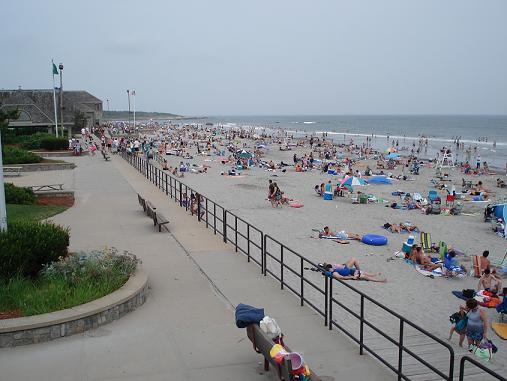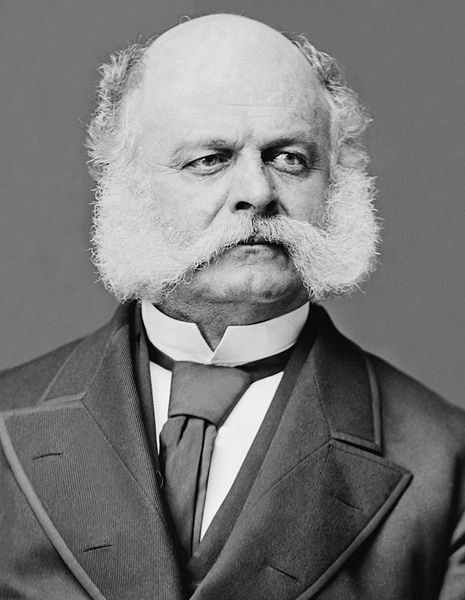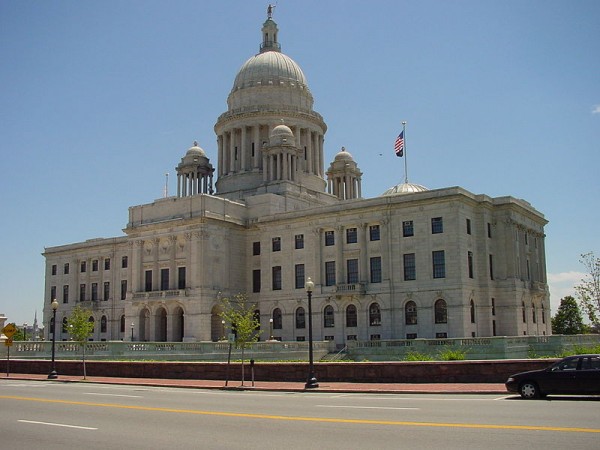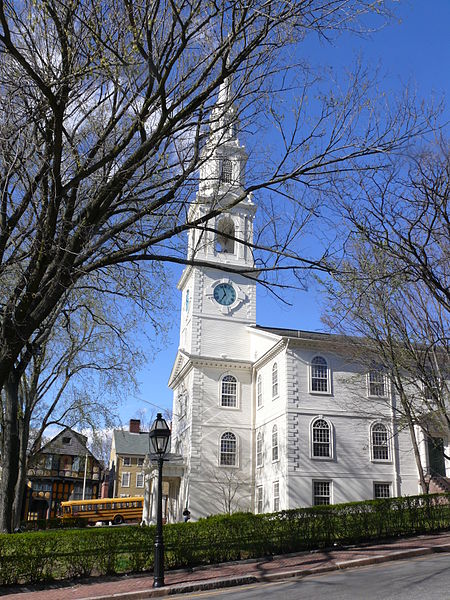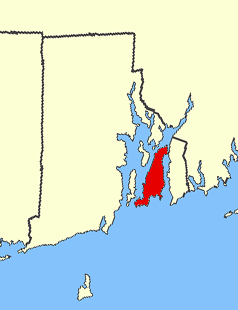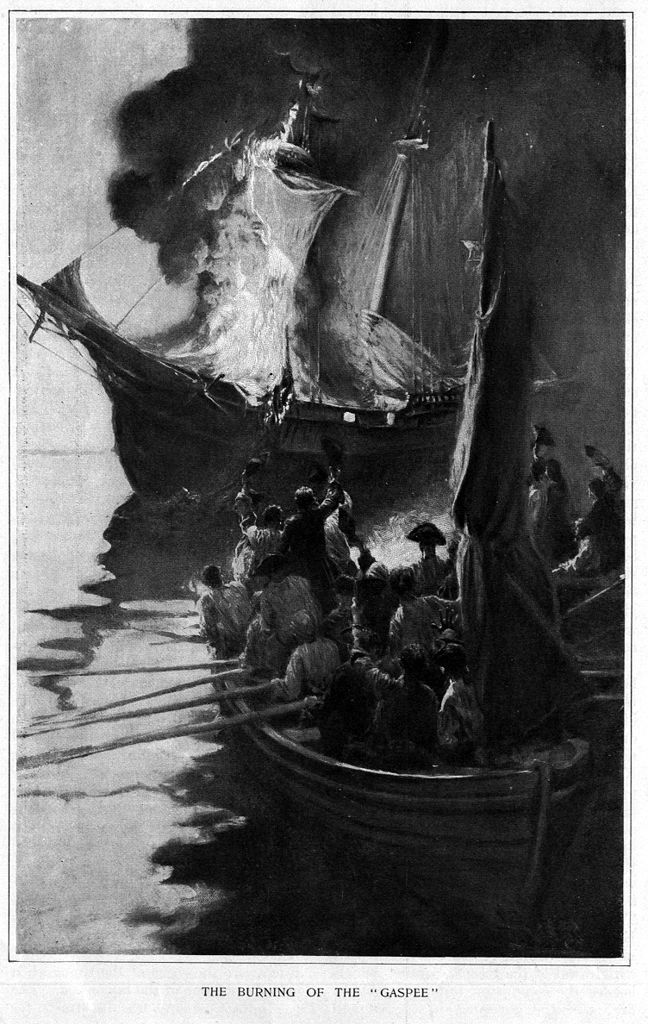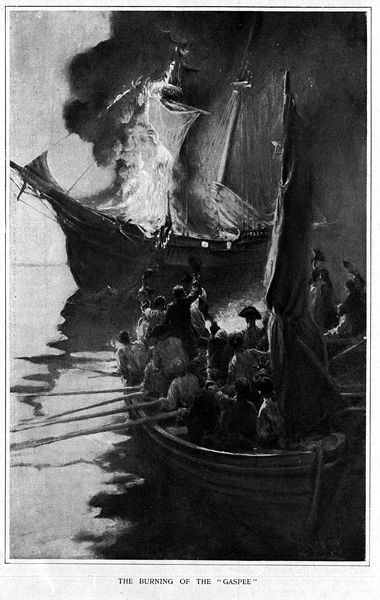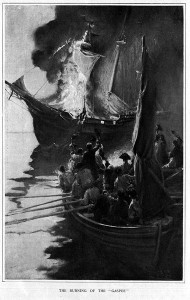AARON BRIGGS AND THE HMS GASPEE will be screened on November 24 at 9 pm. All proceeds will benefit the Providence Industrial Workers of the World Office Fund. Tickets are $2. We invite RIFuture readers, contributors, and message board writers to come and engage in an open discussion about these topics. A version of this essay was previously published by CounterPunch!
“Why not make a film about the Gaspee?”
CLICK HERE TO VISIT THE EVENT PAGE!
In 2010, I was out of work with a BA in Film Studies from Rhode Island College and nowhere to go. My mother, one of the primary supporting forces in my life, suggested I produce an independent documentary about the 1772 burning of the HMS Gaspee in Warwick, Rhode Island, an attack on a British ship that is seen by many local residents as the ‘First Blow For Freedom’ in the American Revolution, predating the Boston Tea Party by more than a year and involving gun violence against a British officer, much more bombastic than tossing some beverage mix overboard. However, what I found along the way would prove to be much more than purely educational. In my work trying to better understand the particulars of June 9, 1772, I discovered the way that white supremacy works in New England, what the forces of power will do to maintain control, and how people will sometimes violently react to suggestions that alter their perspectives.
To begin, what exactly happened when the Gaspee was burned?
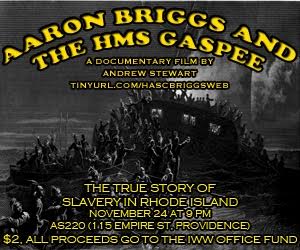 On June 9, 1772, a ship called Hannah, owned by the merchant John Brown, was returning from sea and sailed into Narragansett Bay, the major waterway of Rhode Island. The HMS Gaspee, captained by a man called Dudingston, hailed the boat for inspection, as the vessel might have been carrying untaxed goods and was returning from trade on the Notorious Triangle, as the slavery circuit was called by Dr. Jay Coughtry. But instead, the Hannah gave chase. Brown’s boat, a lighter packet ship, angled in close to the shore in the shallows at Namquid Point, tricking the much-heavier schooner Gaspee to run aground. The Hannah continued on to Providence and alerted John Brown, who led a marauding party later that evening. Returning to the beached ship in the early morning, the raiders opened fire, wounding the captain, and setting the boat ablaze. Beginning in 1965 and celebrated every May into early June, residents in the community near the site of the original attack commemorate the event with a series of parades, fairs, and re-enactments called Gaspee Days.
On June 9, 1772, a ship called Hannah, owned by the merchant John Brown, was returning from sea and sailed into Narragansett Bay, the major waterway of Rhode Island. The HMS Gaspee, captained by a man called Dudingston, hailed the boat for inspection, as the vessel might have been carrying untaxed goods and was returning from trade on the Notorious Triangle, as the slavery circuit was called by Dr. Jay Coughtry. But instead, the Hannah gave chase. Brown’s boat, a lighter packet ship, angled in close to the shore in the shallows at Namquid Point, tricking the much-heavier schooner Gaspee to run aground. The Hannah continued on to Providence and alerted John Brown, who led a marauding party later that evening. Returning to the beached ship in the early morning, the raiders opened fire, wounding the captain, and setting the boat ablaze. Beginning in 1965 and celebrated every May into early June, residents in the community near the site of the original attack commemorate the event with a series of parades, fairs, and re-enactments called Gaspee Days.
But things are never so simple, and to understand what really happened, you must understand who John Brown was.
John Brown is a figure whose life and money is intertwined with the very fabric of the State of Rhode Island and Providence Plantations. Since his ancestor Chad Brown was one of the original settlers of Providence, he and his brothers, through their business Brown Brothers Incorporated, created a mercantile empire to make the Rockefellers seem like like amateurs. They ran a successful import/export business across both the Atlantic and Pacific. They built ships and materials necessary for nautical voyages. They funded Samuel Slater, the man who built the first textile mill in America, and therefore jumpstarted the Industrial Revolution. They founded the first bank in the state. But the hinge of the entire Brown fortune was their trade in human beings. As early as 1636 and until well after the foundation of the United States, the Brown family was one of the most active and prosperous families in the slave trade.
From a simplistic mathematical perspective, the Brown family did not put the most human bodies on the shores of Rhode Island, so one can argue that they were not the largest slavers in the state. But from a Marxist perspective, taking into account the basic political economy of their business interactions, they were the most impactful business in not just New England but perhaps in the entire country. They built the ships that were sold to other slavers. They owned metalworks that forged the chains that were used to hold men and women in bondage below deck. In the time of the slave trade, merchants worked in markets operating under up to five different foreign currencies, so instead the day-to-day transactions of the trade were based on a barter system of sugar cane, molasses, and rum. Up and down the East Coast and in the Caribbean, the Browns owned and operated sugar plantations and distilleries, not to mention businesses that built barrels to transport these various sugary extractions. They were not merely involved in the Triangle Trade, they were the Triangle Trade. On the night of the Gaspee attack, an African/Native American teen named Aaron Briggs was brought to help aid in the raid. Later, Briggs would go on to try and testify against his master so to gain manumission, something that was prevented by an active campaign of silence by colonists who were opposed to the British. For such a dire infraction, it can be said Briggs did receive blows, but they certainly were not for freedom.
This heritage proves to be quite problematic in New England, a region that likes to pretend it was on the right side of history because it provided Union soldiers to fight the Civil War. But this is far from the reality. People in Rhode Island have no qualms about maintaining a status quo where black and brown people live in ghettoes while millionaires go yachting in Newport. For a state that prides itself on history, people are apt to forget the Boston bussing riots, where Louise Day Hicks threatened to assassinate Sen. Edward Kennedy for supporting desegregation. Racism is something that happened in the South a long time ago and is not a problem here because this state is solid blue Democrat and gave its electoral college votes to Barack Obama both times.
In the case of Brown University, endowed with John Brown’s fortune and built using slave labor, the administration has been historically reticent. For centuries, literally, the topic was a taboo that was not talked about. In 2000, Drs. Carolyn and Richard Fluehr-Lobban of the Rhode Island College Anthropology Department, along with colleagues from the Rhode Island Black Heritage Society, recognized the moment had come when they might force this discussion into the open. The John Brown House, previously a private museum, had come into financial arrears and needed to be absorbed by the Rhode Island Historical Society, meaning it was now being funded by tax payers who had the right to insist that the building tours be modified to include mention of slavery. This led to an 18 month dispute, culminating in August 2002 with the unveiling of a plaque from Black Heritage that said the words ‘slave trader’. In 2003, Brown President Ruth Simmons, granddaughter of a slave herself, appointed a Steering Committee that later issued a report with suggestions for future scholarship and memorial.
However, Brown is quite territorial and wishes to maintain absolute control of the narrative. The head of the Center for the Study of Slavery and Justice, Prof. Barrymore Bogues, has accused me of unprofessional conduct for interviewing the Fluehr-Lobbans and other figures who forced the discussion to begin while not including him. The people in charge of the Gaspee Days celebrations have vandalized my posters advertising the film (though I must admit that a select few members, such as Latina educator Marta Martinez, bookseller Karen Calkins of Twice Told Tales, and Jeff St. Germain, owner of Little Falls Cafe and father with his husband Matt of an adopted African American child, have been supportive). Last year, with the assistance of the State of Rhode Island’s video production unit Capitol TV, traditionally used for the broadcasting of sessions from the State House, the Gaspee Days Committee produced its own documentary that white-washes the unsavory aspects of this story and glorifies men who traded in human flesh as heroes. This is the definition of racism in New England, not a glaring image like a burning cross but a conspiracy of silence and ignorance.
At this point, I have no delusions of grandeur about making it big with my documentary. But I remain forceful in fostering the discussion through screenings and other promotions. Why? In cities like Ferguson or Baltimore, the recent protests occurred because the reality is that community celebrations and heritage festivals did not make a place for historical persons of color. That cultural apartheid is dangerous.
The Pawtuxet area has evolved in a way where black and brown children are now moving into the area thanks to the suburbanization of a growing black middle class. Unless we create a narrative that not just has space for a few token blacks but instead celebrates their contributions from the beginning, we will have a tragedy on our hands very quickly. Gaspee Days began this year on April 3 and there is no discussion of Aaron Briggs. The children of color continue to expand in population and grow in age.
Like a pressure cooker, one can feel the white supremacy at work.

